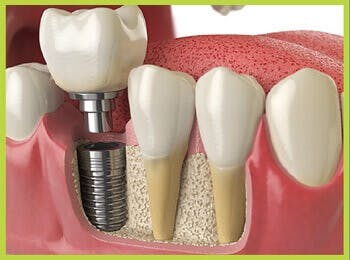Botox Treatment North York
Botox Therapeutics in North York

Most patients complain of the following symptoms associated with TMD:
- Pain or tenderness in the face, jaw joint, and/or in or around the ear when talking, chewing, or opening the mouth wide
- Grating, popping, or clicking sounds coming from the jaw when opening or closing one’s mouth – these sounds may be accompanied by pain but they do not have to be
- Trouble opening the mouth widely
- The facial muscles feeling “tired”
- The jaw getting “locked” or “stuck” in a certain position, whether the mouth is open or closed
- Facial swelling, particularly on the side of the face
- Difficulty chewing or a feeling that the top and bottom teeth are not fitting together the way they should when biting
- Toothaches not associated to caries
Let Dr. Nubia Diaz assess your concern, book an exam to see if you are a candidate forBOTOX® Theurapeutic injections for TMD.
BOTOX Theurapeutic – may also be used to treat Temporomandibular Joint (TMJ) muscle hyperactivity and pain due to grinding and clenching causing pain that surrounds the jaw and control chewing.

Dr.Nubia Diaz is a general dentist using BOTOX® Therapeutic for management of TMJ related pain. As well, she can provide occlusal rehabilitation( restore missing teeth), use splint (mouthguards) therapy if needed to manage TMJ issues.
HOW DO I KNOW IF BOTOX Theurapeutic TREATMENT IS RIGHT FOR ME?
You will first need to be formally examined and diagnosed with TMJ disorder. Dr. Diaz will evaluate the extent of the condition and determine what course of treatment is best for you. Usually, the initial approach involves conservative treatments, such as self-care, physical therapy and bite guards. Medications may also be used to relax the jaw or relieve pain. Patients who do not respond to conservative treatments may be considered for joint injections or referred out if needed.
Botox was once reserved for lessening the tell-tale signs of ageing - such as annoying wrinkles and frown lines - but these days you can opt for Botox treatments for therapeutic reasons as well (like treating TMJ and jaw tension issues).
Botox Treatment for TMJ and Jaw Tension
Botox injections have become a great alternative treatment for patients suffering from troublesome maladies like TMD (which may include a headache, clenching/grinding, and sleep bruxism).
The temporo-mandibular joint (TMJ) is located on both sides of the head at the point where the jawbone meets the skull. The temporo-mandibular joint is used during talking, eating, swallowing, and other everyday activities. If this joint becomes displaced or is overworked through excessive teeth grinding, a person may suffer severe tension headaches, as well as sharp pain in the jaw.
Scientific studies have shown that patients who received Botox injections experienced significant improvements in pain levels, jaw function, and levels of tenderness to touch. Botox relieves jaw tension by making muscles unable to engage in the powerful, often the unconscious movement of the jaw that produces headaches and pain.
What's Involved in Botox TMJ Treatment?
Botox is injected into the temporalis, frontal, and masseter muscles that together can cause jaw pain and headaches. Botox works by blocking nerve signals that cause uncontrollable muscle movements, essentially relaxing the muscles.
Botox injections take only 10 to 15 minutes and remain effective for anywhere between two to six months. The frequency of treatment required will depend on each individual patient and the severity of symptoms.
Most patients who receive Botox treatment regularly for more than a year notice that as time goes on, they can go longer between each treatment. The need for Botox treatment can decrease from 3-4 times per year initially, to maintenance treatments of 1-2 times a year.
Risks and Benefits of Botox Treatment for Jaw Tension
The benefits of Botox treatment for TMD are many. For people suffering from soreness and pain resulting from problems with the temporo-mandibular joint, Botox injections often provide substantial relief. While reducing the ability of facial muscles to engage in problematic grinding, Botox doesn’t interfere with the ability to perform daily activities as usual - such as talking, chewing, and swallowing. This makes the Botox treatment for jaw tension a convenient and effective option for many people.
In addition, the treatment can help safeguard dental health, since excessive grinding can result in worn down teeth and damaged gums that may require costly treatment over time.
While botox treatment for TMJ disorders appears to be safe, certain medications, intoxicants, and other substances can minimize or negatively impact the effectiveness of Botox injections. For this reason, patients should honestly disclose any medication or substance use with our dentists prior to treatment. Although complications are rare, in some cases patients have experienced bruising and bleeding at injection sites, or excessive paralysis of the muscles in the areas treated.
Cost of Botox TMJ Treatment
The cost of the Botox TMD treatment will vary based on where you live and receive treatment, and the severity of your condition (and therefore, how many Botox injections are needed). Botox treatment is usually charged on a per-visit basis.
Many dental insurance companies accept Botox TMD treatments, however, all patients should check their individual policies. If your insurance policy does not cover Botox treatments for TMJ and other therapeutic uses, you may be able to access other financing options. Speak with our friendly, knowledgeable staff at Stonebrook Dental in North York to learn about options you may have access to.
FREQUENTLY ASKED QUESTIONS
Botulinum toxin is injected in extremely small amounts into affected muscles. The exact way it works is quite complicated, but the end result is that it blocks nerve impulses to relax the muscle and relieve the spasm. Relaxing the jaw closing muscles can also provide relief for the jaw joints by decreasing the muscular loading of these joints.
If you would like more information:
Your doctor would be happy to discuss any aspects of Botulinum toxin therapy with you. Please do not hesitate to ask questions and feel free to bring someone with you when you come to discuss therapy with your doctor.
If you are looking for a dentist in North York for Botox treatment, please call us at (416) 636-4227 and book an appointment.
Book Online
Stonebrook Dental offers the ability to request your dentist appointments online. Schedule an appointment now!
Book OnlineNew Patient Forms
By filling out the New Patient Forms ahead of time you will save significant time on your visit.
New Patient Forms